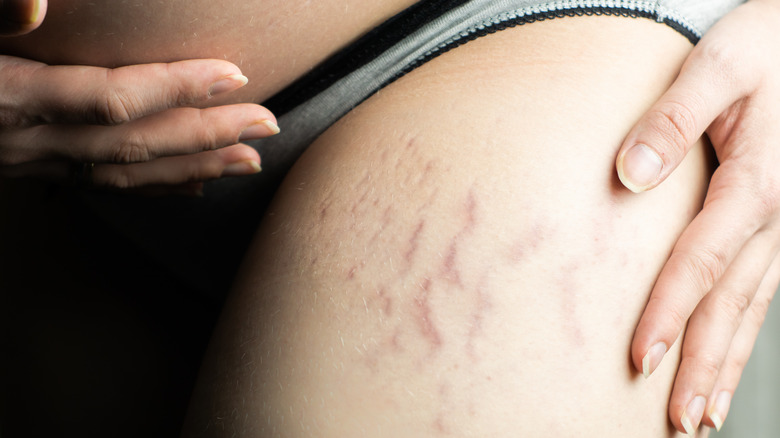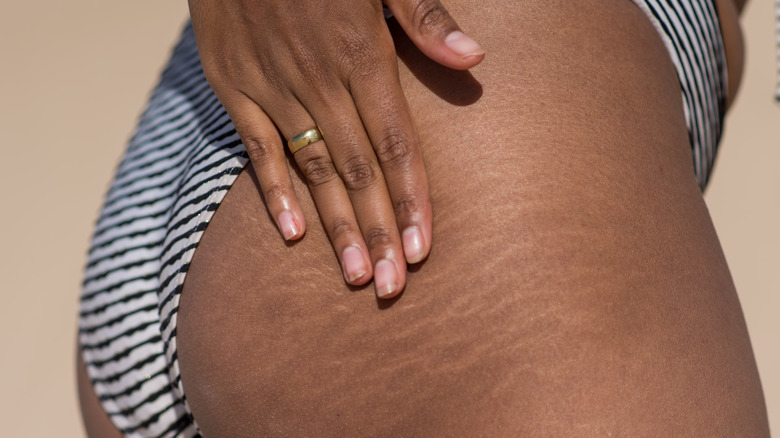What It Really Means When Your Stretch Marks Itch
Stretch marks are a type of scar that comes in various forms and colors, but most often they resemble the shape of a line, and are white, red, or pink in color. These long, narrow scars are also known as striae distensae, according to Healthline, and show up on almost any part of the body. They typically develop in areas that have experienced recent weight gain, like the abdomen, thighs, hips, or arms.
Gaining weight doesn't necessarily mean you'll develop stretch marks. Stretch marks are more likely to appear if you've gained weight suddenly or in a short amount of time, and may be more visible if the weight is lost quickly, Glamderm reports.
The scars are very common during and after pregnancy due to the body making room for a growing baby. But stretch marks don't only occur during pregnancy. For example, tweens and teens may experience stretch marks due to weight gain during puberty, according to Healthline.
Luckily, stretch marks aren't harmful to your health. They can, however, leave you with a few uncomfortable symptoms, such as itchiness.
Causes of itchy stretch marks
The real reason stretch marks itch is due to your skin tearing when it stretches (via Healthline). When the skin tears at the dermis, or its middle layer, the layer below the dermis fills in the tears with stretch marks, giving it an often bright red appearance at first. This makes that layer of skin more thin and soft, providing not nearly as much support to the skin and nerve effectors as it did before (via Glamderm). This lack of support can cause itchy stretch marks. This is especially common when stretch marks are first forming or healing.
Over time, stretch marks slowly begin to fade and become less noticeable, but they are permanent, like most scars, according to the American Academy of Dermatology (AAD). If you're looking for relief fast, it's best to start earlier rather than later as mature stretch marks are harder to treat. There are dozens of stretch mark creams, gels, and lotions on the market to treat stretch marks, but there's no guarantee that any given treatment will be effective. You'll be more likely to have success if you reach out to a dermatologist.


